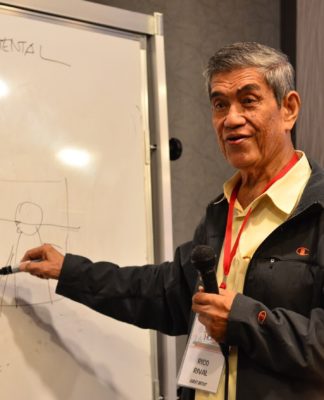GOOD choice.
With the appointment of former UST Rector Fr. Rolando de la Rosa, O.P. as the new Commission on Higher Education (Ched) chairman, better days are forthcoming for the Commission.
Fr. De la Rosa’s appointment, as Rev. Fr. Ernesto Arceo, O.P., prior of the Philippine Dominican Province, would describe it, is only proper since the Order pioneered the tertiary education system in the Philippines.
Moreover, Fr. De la Rosa is battle-tested in administration. He was UST’s rector for eight years. At present, he is the Colegio de San Juan de Letran-Calamba’s rector.
Nonetheless, the challenges are plenty.
Undeniably, after high school, most of Filipinos elect to stop schooling as most of them would not have enough resources to go through college. The big challenge is to make the country’s higher education more accessible.
In recent years, Congress has created more state colleges and universities (SCUs). Indeed, the more SCUs there are, the greater the chances of our less-privileged countrymen of acquiring tertiary education.
Accessibility, however, would solve only half of the puzzle. Sheer quantity is worthless if it does not come with quality. Most of the country’s SCUs are, more often than not, considered diploma mills. Subsidized education is useless if at the end of the day graduates of SCUs are not productive enough.
As earlier stated, the challenge of making tertiary education, particularly public school education, quality-driven is a pressing matter.
Given the government’s tight budget, a probable solution to the accessibility and quality is to rationalize public education.
Instead of viewing the private educational institutions as competitors, the government should see them as partners. The government should instead assist them.
It has been proven that private schools have done a decent job of producing quality graduates.
But solving the problem of quality tertiary education does not solely fall on improving the public schools system or teaming up with private schools. Poor basic education is another circumstance that aggravates the situation.
Recently, a Department of Education (DepEd) aptitude test on English, Math, and Science for high school students showed discouraging results. More than 97 per cent of the students who took the test could not even breach the 75 per cent mark. Almost one million students took the test.
The saddening results only mean that our high school students are merely half-cooked upon entering college. Allowing these students to reach college would result in an even bigger disaster.
Over at DepEd, Education Secretary Florencio Abad has his hands full with the basic education malady, for which his predecessor Edilberto de Jesus established the controversial bridge program. Nevertheless, Ched should come up with contingency measures to cope with the influx of “half-cooked” high school graduates seeking higher education.
Fr. de la Rosa was only the fourth Filipino rector since UST was established in 1611. During his term, he was instrumental in incorporating a Filipino image into the University without necessarily eliminating its European heritage in education. The University’s quality of education also improved as his rectorship zeroed in on curricular reforms to make the UST education more relevant to the changing times.
Well, let’s just hope Fr. de la Rosa’s touch would work to improve the country’s higher education.













